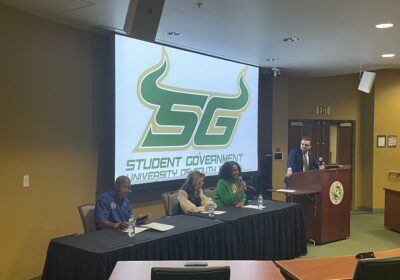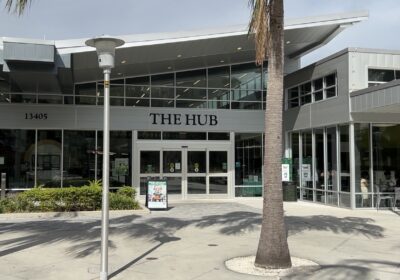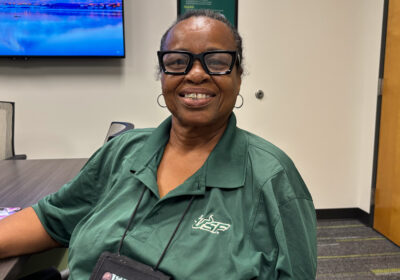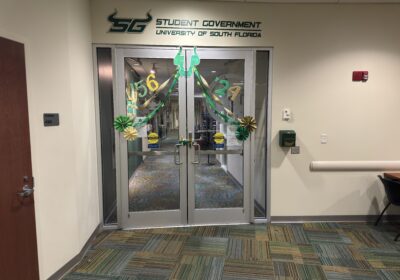SAFE Team extends hours for trial period

Students who frequently use the Safe And Free Escort (SAFE) Team may have noticed a change this week in the form of an extra hour of service.
Since Monday, the team has opened at 5:30 p.m. rather than 6:30 p.m. and continue to do so on a temporary basis until the end of June. The pilot program is designed to assess the need for SAFE Team in order to look at expanding hours so the service would be available from 5:30 p.m. to 2:30 a.m.
“I think it would be more beneficial if we extended them at the back end, but that’s a lot harder because we have to take into account student schedules and hiring students who are able to work until three in the morning,” Student Body Vice President Michael Malanga said.
“What we decided is that we would do a pilot program where we would extend it an hour in the beginning to see if the demand was there before we put it full scale into the budget for next year.”
This initiative was included in Malanga’s campaign last year as part of improving safety on campus.
“When (student body president) Andy (Rodriguez) and I were campaigning over a year ago now, we talked to students about things they’d like to see changed and one of the things a lot of people said they liked but could use improvement was SAFE Team,” Malanga said.
“It’s one of the most recognizable things with Student Government but we thought that it could be more accessible. One of the ways I really wanted to do that is by extending hours.”
In order to be able to use this pilot program while still paying the students working for that hour, the program is dipping into payroll savings from this year. That means SAFE Team didn’t increase its budget for the year but used money already set aside to pay drivers.
“I’ve put in a request for the next budgetary cycle for increased hours — one hour at the beginning and one hour at the end,” Malanga said. “We’re going to wait to see if this is successful. If this is successful, ideally we’ll extend the hours.
“If this isn’t successful, we’ll re-evaluate and say maybe this isn’t the best move and try to find new ways to make things better. But that will be more on next year’s administration to figure out where they want to go once they have that data.”
SAFE Team keeps track of all rides and calls each night. These numbers allow the team to look at the busiest times of night and the busiest days, the response time of carts and gauge the need for the number of carts or the extension of hours.
Malanga expects to be able to look at this data within the next month in order to see how effective the pilot system proved to be and if extending the hours of SAFE Team further would be worthwhile.
“We’ll want to give it probably a month to a month and a half,” Malanga said. “One of the things I’ve insisted on with SAFE Team is that they keep really good records on how many rides they’re doing per night, how many calls they’re getting. That allows us to keep track.
“Do we need more services? Do we need less? Can we scale it back? Can we increase it? They’re going to be keeping track of it and we’ll look at it once we have a solid pool of data.”
According to Malanga, the main goal is to publicize safety on campus. This includes spreading the word about SAFE Team hours and a week-long campaign during April that will emphasis safety resources available for students.
“We’re going to have a whole week in April where we actually publicize not only SAFE Team but all the safety resources we have on campus,” Malanga said. “Again, it’s another thing we promised during the campaign; that we would do a better job at advocating and letting students know about the resources we have.
“I think that by doing a good job of letting them know and also having that increase service, hopefully will be two good changes we can make for the rest of March and April.”






